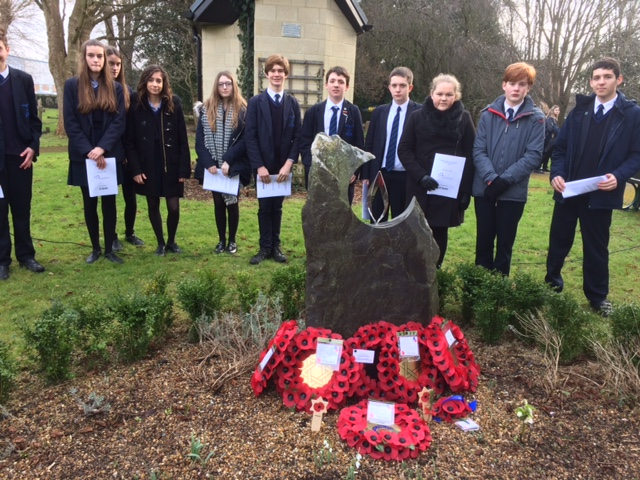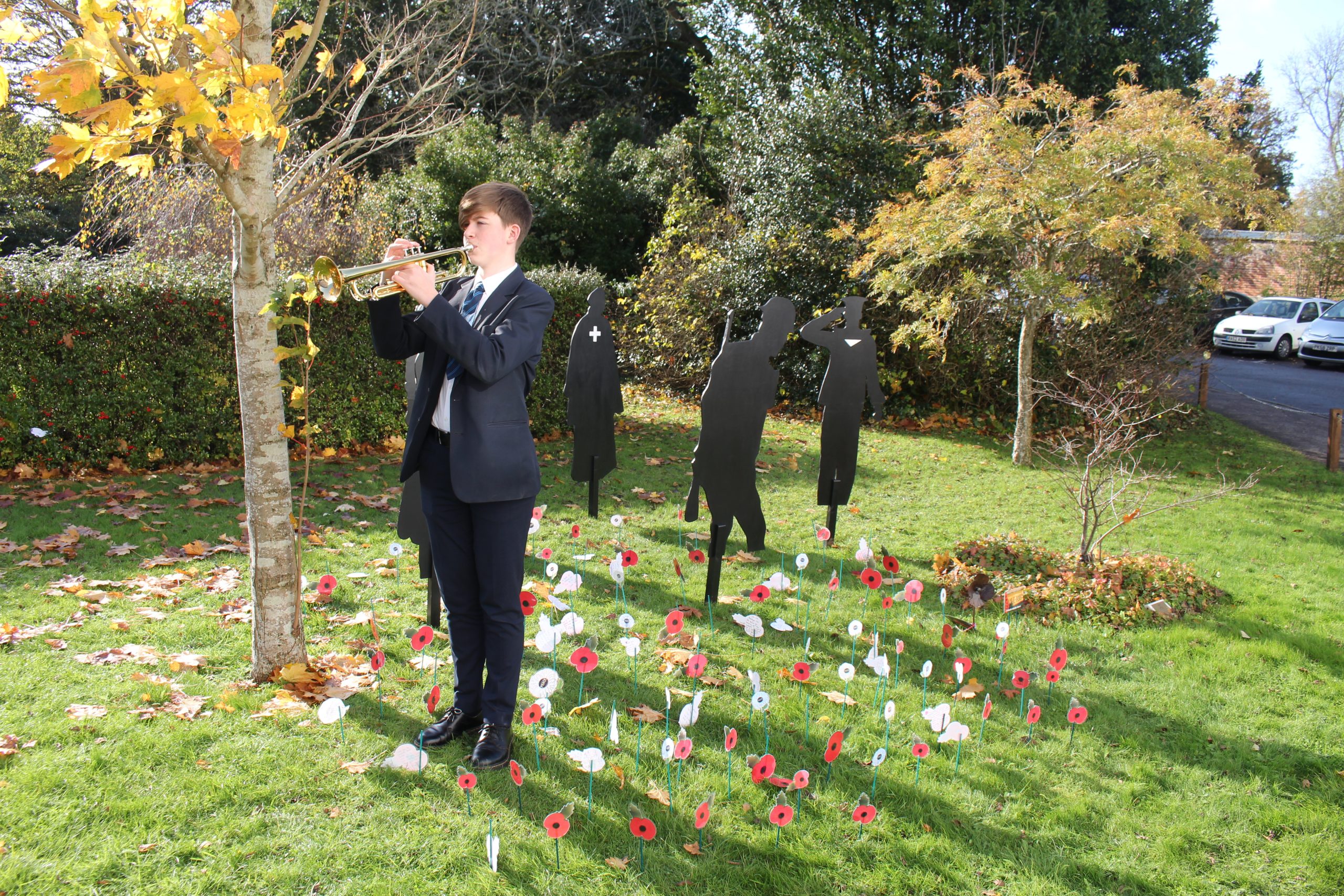Department: History
Head of Department: Miss H Short
If you wish to learn more about the curriculum, please contact the Head of Department by email: h.short@oaklandscatholicschool.org
If you wish to learn more about the curriculum, please contact the Head of Department by email: h.short@oaklandscatholicschool.org
Lessons from the past can always shape the future. Students will equally be asked to revisit past work to ensure that key knowledge and information is embedded. Lessons are a mix of teacher led and student led learning. We make use of a range of pedagogical techniques, from problem-based learning (for example, ‘history mysteries’) to independent research, to formal debates. The type of lesson depends on age and stage, where the lesson sits in the scheme of learning, the learners’ needs and the skills of the teacher of that class (although we do work collaboratively and share techniques/experiences). There is an increasing focus on retrieval practice through low-stakes quizzing and interleaving of knowledge.
Key Stage 3
At Key Stage 3 we follow a largely chronological approach, with a mix of overview and depth studies of British, local and world history. Knowledge is at the heart of our approach. We make use of enquiry questions to frame some of our teaching and learning, where it is appropriate, and our main thematic study is in Year 8 which looks at social history in Britain within the framework of crime and punishment. The curriculum is responsive to national themes and issues. For example, since 2021-2022 we have included an investigation, ‘What was Portsmouth’s role in the slave trade?’ in Year 8. This is working in conjunction with the National Museum of the Royal Navy and allows us to combine a local study within the wider topic of slavery and its abolition in the period of 1700-1900. From 2021, students will have the option to choose to study ‘Britain: migration, empires and people’ instead of the Health unit in their AQA GCSE History course.
Key Stage 4
Many of the implementation strategies employed in KS3 translate into KS4.
All students can opt for GCSE History if they so wish. We follow the AQA GCSE History (8145) specification and we start teaching the course in June of Year 9 after students have moved into their GCSE timetable. We currently teach the following units:
We broadly follow the same lesson schedule as advised by AQA and create differentiated learning activities according to our learners’ needs. Assessment consists of standardised ‘mid’ and ‘end of’ unit tests based on exam style questions and marked to AQA’s mark scheme. We provide specific feedback through teacher comments and formal online feedback. Whilst the specification steers the curriculum we also ensure that we find an opportunity to discuss and develop key values and virtues. For example, the rule of law and its failure during Prohibition America or the erosion of democracy in Communist Eastern Europe after World War II. Alternatively, the virtue of courage of the Catholic recusants during Elizabeth I’s reign. History is a rich subject for debate.
Key Stage 5
At A Level we follow the OCR History A (H505) specification and we currently teach the following units:
Assessment usually comes in the form of exam style essay questions and students are given detailed, personalised feedback at least once a half-term by both subject teachers.
How we address values and virtues through the History Curriculum
The History curriculum addresses Catholic Social Teaching by considering the story of people through time, throughout our curriculum we investigate key events and people from all social classes, gender, age, and race. Examples of this can be seen across our curriculum:
1) Dignity of the Human Person – this is core to the effective teaching of History and the story of humanity forms the basis of our curriculum. Fundamentally, we believe that every individual is special in the eyes of God and by having this value at the heart of our studies, we hope to provide a thoughtful, sensitive and accurate account of a range of stories from the role of Black Tudors (Y7) to Indian Soldiers in WWI (Y9) and the Suffragettes during WW1 (Y9).
2) Peace – so much of our study in History is concerned with conflict and tension in the past. The resolution of conflict through peace settlements – and their relative pros and cons – is an important aspect of our curriculum. For example, the Magna Carta (Y7, the Treaty of Versailles (Y9) and the Treaty of Jaffa (Y12).
3) The Common Good – (Y7-Y13) the focus on important individuals throughout History who have showed bravery and courage in their actions is another fundamental aspect of History. For example, Emmeline Pankhurst, Martin Luther King, Queen Aethelflaed.
4) The Option for the Poor and Vulnerable – the stories of the poor and vulnerable members of society is a theme that runs through so many of our schemes of work. From peasants in the Middle Ages (Y7), the children in the mills during the industrial revolution (Y8), and social developments in the USA in the 1960s (Y10).
5) The Dignity of Work – much of our study of the past is concerned with economic and social developments. For example, the effects of the imposition of serfdom in the Middle Ages (Y7) or the impact of the Industrial Revolution (Y8), or the development of economic prosperity in post-war America. Students are also exposed to the fragility of work and the social and political consequences of deprivation. This can be seen in the Life in Nazi Germany unit with the emergence of Nazism after the Depression of the 1930s (Y9).
6) Solidarity – there are many examples of how our students are given the opportunity to connect with the past and to understand how communities and ancestors have overcome challenges in order to survive and thrive. For example, the importance of communities in the English civil War (Y8), the fight for women’s rights in WW1 (Y9) and how people resisted during the Holocaust (Y9).
7) Care for God’s Creation – the History curriculum allows students many experiences to investigate the impact of humanity on earth and how communities across the centuries have adapted the landscape to suit their needs. This allows us to see how identities are created and developed. Key examples include the construction of castles and cathedrals (Y7), the Victorian town and city (Y8) and the impact this has had on people and their health (Y11).

The department uses a range of resources and skills to support disadvantaged learners. A range of students have learning passports that include implementation strategies to support learning. Students are encouraged to reflect and review their attainment and all teachers track the progress of their classes in their mark books. ‘Green Pen work’ is carried out during each assessment point. There is a particular requirement for each teacher to closely monitor Pupil Premium, SEND and EAL students and intervene with individual students as appropriate
Assessments are designed to test both knowledge and skills gained at a particular stage, with a variety of tasks that assess second order concepts. We make use of formative feedback through ‘green pen work’ in accordance with the school policy, as well as scaffolding and differentiated tasks to support the wide range of academic ability here at Oaklands. All assessments are standardised and moderated to improve consistency of monitoring and feedback. This will allow teachers and the Head of Department to monitor concrete domain knowledge in a more efficient way, intervene where progress is not being made and provide the foundation for historical analysis, evaluation, interpretation and judgement.
We have a clear understanding of what children need to learn and by when (Age related expectations).
High Prior Attainers are supported in History by a range of challenge and Thinking Hard activities both in class and beyond. We run History Club for our keen historians in Years 7-8. At GCSE and A Level, we provide a high level of personalised feedback, fully supported online, so that students can develop a complex understanding of the past. There is a consistent use of modelling so that learners can see how to apply their knowledge to construct detailed, accurate and logical chains of reasoning about the past.
Feedback comes in a range of forms, but each student will receive at least one piece of detailed written feedback on their work, per half term.
We build the Cultural Capital of our students through everything we teach as history and culture are intrinsically linked. We are constantly improving students’ understanding of wider culture through exposure to politics, art, religion and language within the history we teach. We use music and film in our lessons wherever possible to give students access to a wide range of influences and help them to understand how culture can reflect or drive historical events. Further rationale behind our curriculum design includes ensuring students see the relevance of history in the modern world.
To further develop historical awareness and wider cultural capital, the history department offers students a range of experiences outside of the classroom environment.
These have included:

Many of the sources that we use in History are presented in either written, auditory or visual form. Students need to be able to interpret these sources, analyse and make judgements. The development of literacy skills is therefore critical. In addition to material specific to our subject students engage in the ‘Flying Start’ reading initiative.
Areas specific to our subject include:
Disciplinary literacy
Giving students the ability to read complex academic texts.
Targeted vocabulary instruction